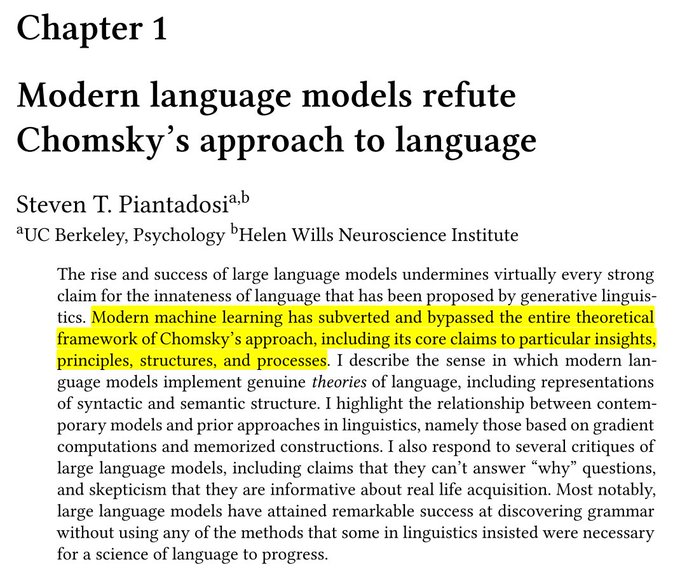
Yohan J. John
@DrYohanJohn
Followers
7,238
Following
1,004
Media
3,434
Statuses
31,910
🧠 computational neuroscience | emergence | history of science 🤖 Research Assistant Professor at Boston University
Boston, MA
Joined March 2009
Don't wanna be here?
Send us removal request.
Explore trending content on Musk Viewer
Telegram
• 1480760 Tweets
Hezbollah
• 175749 Tweets
Lebanon
• 101834 Tweets
Mark Tuan Superpower Stage
• 78929 Tweets
#VALORANTChampions
• 75700 Tweets
嫌いボタン
• 73401 Tweets
SB19 RED CARPET PREMIERE
• 48596 Tweets
#SB19PagtatagDocuPremiereNight
• 48202 Tweets
Christoph Daum
• 28141 Tweets
BINI PLEASE PERFORM PANTROPIKO
• 27449 Tweets
新潟2歳
• 24453 Tweets
ビシエド
• 22644 Tweets
アルコス
• 19260 Tweets
キーンランドC
• 17924 Tweets
サトノレーヴ
• 16123 Tweets
モレイラ
• 13574 Tweets
キーンランドカップ
• 12195 Tweets
1Z BALIBAGAN SA RED CARPET
• 11398 Tweets
ナムラクレア
• 10941 Tweets
BEOMGYU FIRST PITCH
• 10754 Tweets
Last Seen Profiles
One great thing about the David Graeber &
@davidwengrow
book 'The Dawn of Everything' is that it provides plenty of evidence that Europeans did not invent notions like freedom, democracy, or the public sphere. Versions of all these may well be as old as humanity itself.
7
14
143
I know the pandemic has been a disasteroid, but because of it, a wonderful ongoing collaboration emerged unexpectedly.
Our review of dynamical systems thinking for fMRI, with
@kslays
, Karthik Srinivasan,
@eli_j_muller
,
@DrBMunn
&
@jmacshine
is out now:
9
22
100
Phase transitions are a great example of emergence.
And the existence of such sharps transitions in theoretical models shows that emergence is not necessarily a mark of ignorance about fine-grained details.
Contra the biology maxim, natura facit saltus.
5
15
89
My default position for years has been that neuroscience is too immature to ground self-help advice.
Do any of you see value in framing behavioral/psychological recommendations using neuro-talk?
I was discussing this with
@kslays
and other friends recently.
(...)
21
5
74
David Krakauer, in this collection:
"The idea of emergence can be very simply described as the successful factoring out of the fundamental laws of physics without any loss of explanatory power."
Part of a very cool theme issue ‘Making and breaking symmetries in mind and life’ organized by
@adamsafron
,
@adeelrazi
, Zara Sheikhbahaee,
@DaltonSakthi
and Magnus Bein
with our (actually, MidJourney's) cover:
6
29
124
2
13
78























































































